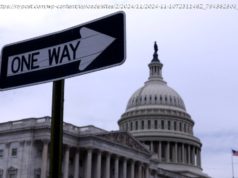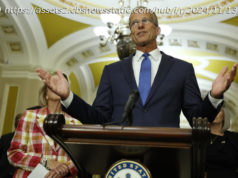Justice Neil Gorsuch, President Donald Trump’s first nominee to the Supreme Court, delivered an opinion Monday that will change how more than 7 million LGBTQ individuals will live and work in the United States.
Title VII of the Civil Rights Act, Gorsuch wrote, which bars discrimination “because of sex,” also covers claims based on sexual orientation and gender identity
But for close observers of his writings and actions on the bench, Gorsuch simply was showcasing his fidelity to rules of statutory interpretation — relying on the plain text of the law — that were championed by the late Justice Antonin Scalia. It is the clearest example yet that Gorsuch, who is by any definition a conservative judge and has cast key votes in the past siding with the President, is capable of flexing his independence, charting a distinctive course and disrupting expectations.
At the same time, it will infuriate those who worked on his confirmation, confident that he was the right candidate to fill the shoes of Scalia.
Just after the opinion was released, Carrie Severino of the conservative Judicial Crisis Network blasted Gorsuch. She said he had “bungled” the decision and Scalia would be disappointed.
“This was not judging, this was legislating — a brute force attack on our constitutional system,” Severino, who also clerked for Justice Clarence Thomas, said.
That point was not lost on Justice Samuel Alito in his dissent that was joined by Thomas.
“There is only one word for what the Court has done today: legislation. The document that the Court releases is in the form of a judicial opinion interpreting a statute, but that is deceptive,” Alito wrote. Repeatedly, in his dissent, Alito quoted past writings of Scalia.
“The Court’s opinion is like a pirate ship,” Alito said. “It sails under a textualist flag, but what it actually represents is a theory of statutory interpretation that Justice Scalia excoriated — the theory that courts should ‘update’ old statutes so that they better reflect the current values of society. “
Joining Gorsuch were Chief Justice John Roberts, and the four liberals on the bench, Justices Ruth Bader Ginsburg, Elena Kagan, Sonia Sotomayor and Stephen Breyer. The liberals chose not to write concurring opinions, allowing Gorsuch’s ringing endorsement of LGBTQ rights and sound rejection of Trump administration arguments, to stand alone.
The vacancy that helped Trump win the White House
When Scalia died in February 2016, it threw the presidential election into turmoil. Senate Majority Leader Mitch McConnell, a Republican, declared he would block any Obama nominee, who turned out to be Garland.
Trump used the vacancy as a key motivator to his base and his eventual victory, and has continued to tout his nomination of Gorsuch and later Brett Kavanaugh — and nearly 200 lower court judges — as legacy achievements of his presidency.
When Trump introduced Gorsuch to the country in January 2017, under the glittering lights of the East Room of the White House, he said he was fulfilling a pledge to “find the very best judge in the country for the Supreme Court.”
“I promised,” the President said, “to select someone who respects our laws” and someone who will “interpret them as written.” Trump was nodding to the fact that Scalia and Gorsuch both considered themselves “textualists” — interpreting the laws as they are written, relying upon the text and the structure of the statute instead of considering what Congress might have meant, or any legislative history associated with the law.
Home
United States
USA — Political Why Trump's Supreme Court appointee Neil Gorsuch just protected LGBTQ rights






